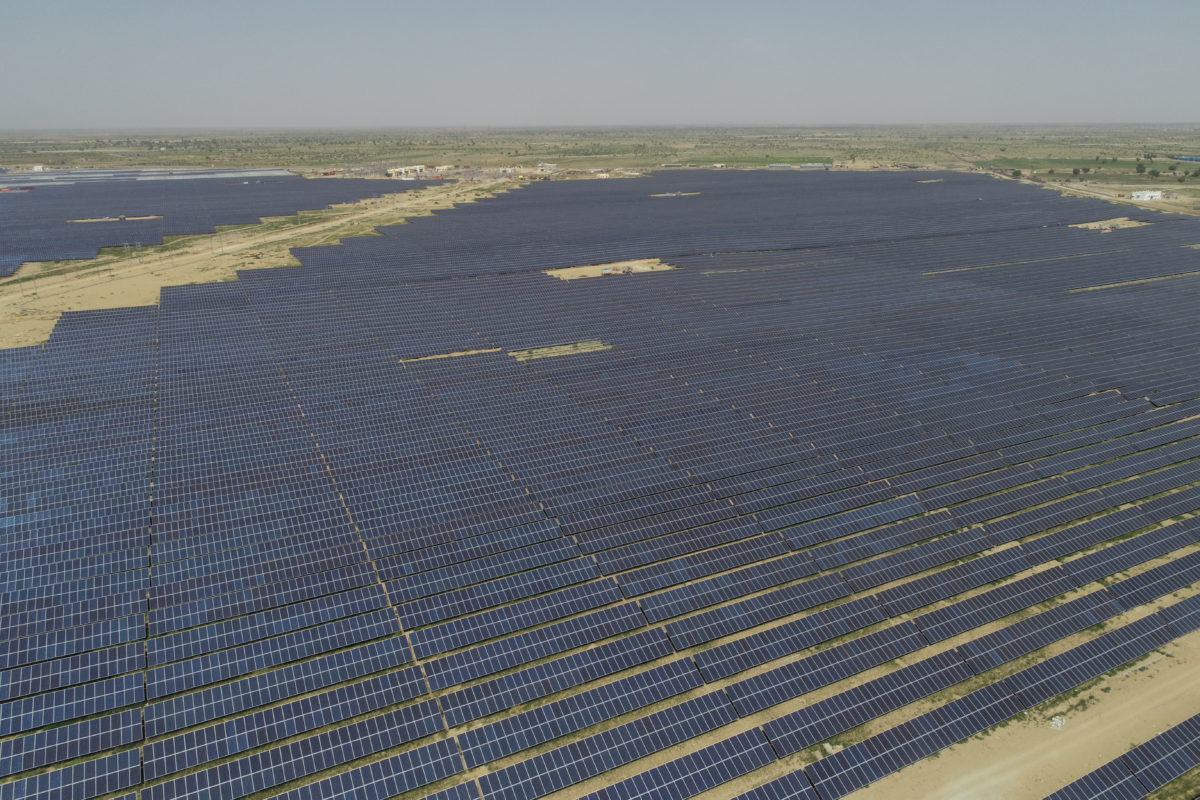India will require around $1.5 trillion in investments by 2030 across key sectors to fund climate mitigation and resilience efforts. The investments will support India’s transition toward renewable energy, biofuels, decarbonisation, and sustainable infrastructure to combat climate change, according to Deloitte India’s latest report, The climate response: Tapping into India’s climate and energy transition opportunity.
India is taking bold steps toward decarbonisation with targets like 500 GW of non-fossil fuel energy by 2030, a 45% reduction in emissions intensity from 2005 levels, and a net-zero emissions goal by 2070. To support this transition, the nation requires a significant financial boost.
India will have to add 300 GW of RE capacity by 2030 to bridge the gap between its current capacity and the announced target of 500 GW of RE capacity. The report suggests that reaching this goal will need around $200–250 billion in investment by 2030, covering areas such as advanced manufacturing, grid integration and system expansion.
Furthermore, RE capacity addition will need to be supported by scaling up energy storage infrastructure by eightfold, necessitating $250-300 billion in capex by FY30.
The report points to a strong investment opportunity in green and biofuels such as bioethanol, Sustainable Aviation Fuels (SAF), methanol, Compressed Biogas (CBG) and green hydrogen. Government initiatives such as blending mandates and obligations will require significant capacity expansion, leading to potential investments of $75–80 billion in biofuels and $90–100 billion in green hydrogen.
The report highlights investment opportunities in critical areas supporting India’s climate resilience, including water security, sustainable agriculture and transport infrastructure. An estimated $60–75 billion will be needed for water-related infrastructure such as sourcing, treatment, supply, conservation and recycling. Sustainable farming practices such as precision agriculture, agroforestry and regenerative methods could attract investments worth $20–22 billion, whereas building a sustainable transport system, focusing on environmental, social, economic and technological goals, is expected to require investments of $600–650 billion.
The report also emphasizes the role of technology in driving sustainability. Digital solutions such as AI-powered monitoring systems, climate risk forecasting tools and blockchain-enabled carbon tracking platforms are expected to enhance decision-making and accelerate climate mitigation efforts. These technologies are likely to attract investments of $60–75 billion.
Further, the report identifies $18-20 billion investment opportinity in circular economy and waste management.
“This investment will reduce emissions, boost job creation, enhance energy security and protect vulnerable communities from climate risks. Financial instruments, such as green bonds, climate funds and blended finance models, are important in mobilising capital for sustainability initiatives,” said Viral Thakker, Partner and Sustainability and Climate Leader, Deloitte South Asia. “Unlocking investment at scale and ensuring equitable access to climate finance will help drive long-term resilience in India’s most climate-sensitive sectors. By strategically harnessing climate finance, India can accelerate its decarbonisation efforts, offering immense investment potential in sectors poised for sustainable growth and innovation.”
“To accelerate its climate journey, India must further strengthen its commitment to integrating renewable energy, biofuels and advanced technologies into a cohesive, sustainable energy ecosystem. This must be supported by investments in energy storage, infrastructure and grid reliability while prioritising inclusive growth. Equally, attention must be given to climate-vulnerable sectors beyond energy, particularly agriculture, water and related ecosystems, which are critical to building long-term climate resilience,” said Prashanth Nutula, Partner, Deloitte India. “A comprehensive strategy that aligns infrastructure, waste management and digital transformation will be crucial in creating resilient, future-ready communities and positioning India as a true pioneer in sustainable development.”
This content is protected by copyright and may not be reused. If you want to cooperate with us and would like to reuse some of our content, please contact: editors@pv-magazine.com.









By submitting this form you agree to pv magazine using your data for the purposes of publishing your comment.
Your personal data will only be disclosed or otherwise transmitted to third parties for the purposes of spam filtering or if this is necessary for technical maintenance of the website. Any other transfer to third parties will not take place unless this is justified on the basis of applicable data protection regulations or if pv magazine is legally obliged to do so.
You may revoke this consent at any time with effect for the future, in which case your personal data will be deleted immediately. Otherwise, your data will be deleted if pv magazine has processed your request or the purpose of data storage is fulfilled.
Further information on data privacy can be found in our Data Protection Policy.